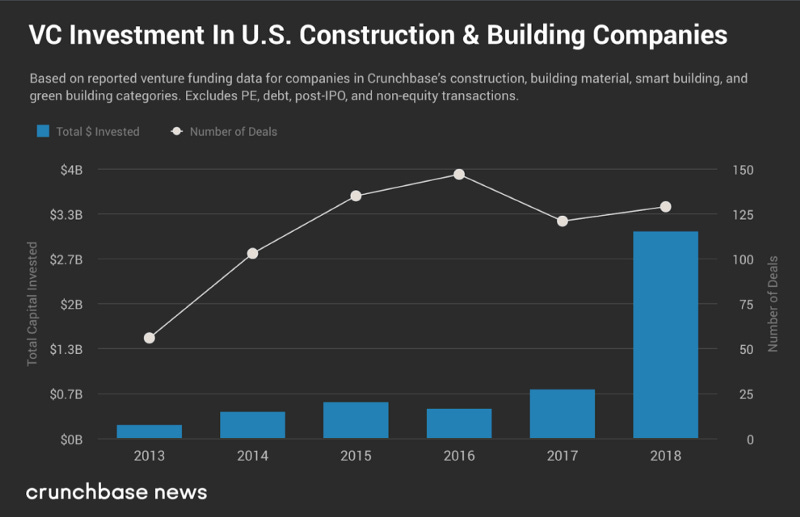Founder Market Fit: How to Create Painkillers Not Vitamins
If you’ve never experienced the pain, how can you be expected to effectively alleviate it? Insider knowledge can make all the difference.
I love restaurants. I love reading about them, I love watching Netflix documentaries about them, and most of all I love eating at them. Do I have any business starting a company in the restaurant industry? Not really. I am merely a fanboy. The most time I’ve spent behind the scenes of a restaurant operation was when I was a delivery boy in high school for Lotus Garden in New Jersey. That does not make me a domain expert by any stretch of the imagination. When I started my current company Pared, I was like most entrepreneurs out there, looking for a problem to solve. I would go into restaurants in my neighborhood and talk to operators about my ideas. Inevitably they would all shoo me away as another techie who was only going to add to their already cluttered counter of tablets for delivery, POS, loyalty programs, etc. These were all vitamins. They are nice to have and may very well help them improve their business, but they don’t cure the real pain crippling restaurants today: staffing challenges. As an outsider, I was oblivious to their biggest problem and clearly had no clue how to fix it.
Most consumer companies are started by people filling a gap in the market that they themselves experienced first hand. Venmo solved the problem of simple peer-to-peer mobile payments because the founders wanted an easy way to pay each other back when one of them forgot his wallet. Airbnb was started by designers who needed some extra cash and wanted to take advantage of a design conference coming to town by renting out some airbeds at their place. There are literally thousands of fascinating origin stories of consumer startups. I highly recommend listening to podcasts such as NPR’s How I Built This to hear more of these stories for inspiration.
Most successful enterprise software companies are started by people who were working in a similar space and identified a pain point that was likely shared by many others. These founders come from marketing, sales, product, engineering and recruiting backgrounds trying to solve problems they faced doing their everyday jobs. Because so many startup ideas come from people solving similar problems, they often end up in very crowded and competitive spaces. Problem? Salesforce is too expensive for most startups, so let’s make a more cost-effective solution: Copper, Freshworks, Prospect. Problem? Recruiting software is terrible, so let’s create a better ATS (applicant tracking system): Lever, Greenhouse.io, Hire by Google. Problem? Project management software is outdated: Asana, Trello, Jira. Problem? Collaboration and internal messaging software is broken: Slack, Workplace, Hipchat. There’s nothing wrong with creating solutions for problems that many companies face because they are justifiably massive opportunities. Just realize that many other smart people are working on solving the same problems and you will have an uphill battle in the fight for capital and talented employees with these competitors.
On the other hand, there are so many forgotten industries facing modernization challenges that are massive opportunities. Some of these “unsexy” industries are already gaining attention and investment in recent years: farming, home services (plumbers, HVAC, electricians), oil and gas, trucking, logistics and construction. If you come from a tech background, you probably don’t have much insight into these traditional industries. It’s also unlikely that you would know the pain points in these industries by looking from the outside in. In order to build a winning painkiller, partner with someone who knows the pain. People aren’t desperate for vitamins because they’re a nice to have, but they will pay dearly and regularly for painkillers because they’re a must have.
Domain Expertise
Understanding the actual pain and knowing what it takes to relieve it are critical to building the right product. When you have intimate knowledge of a problem, you are probably better equipped to come up with the right solution than someone who is researching it as an outsider.
Two brothers, Waleed and Khaled Nasr, started Medely, a labor marketplace for nurses. One of the brothers is married to their cofounder, Angie Karim, the director of nursing at an outpatient surgical center who was always frustrated trying to staff the surgical suite. Agencies were expensive, so she found herself spending hours trying to find qualified per diem nurses. Medely was founded to solve Angie’s problem.
Patreon was founded by musician Jack Conte and his Stanford roommate Sam Yam. Jack, who was and still is part of the popular YouTube band Pomplamoose, wanted to figure out how to monetize their fan base of millions of viewers. Who better to figure out how to support creative artists and connecting with their fans than a creator himself? This year Patreon will have raised over $1 billion from 3 million patrons to support over 100,000 content creators everywhere. Patreon was founded to solve Jack’s problem.
My cofounder Will Pacio experienced the harsh life of being an underpaid cook and also experienced the struggle of keeping his own restaurants fully staffed for years. It was his first-hand insight into both sides of the problem that allowed us to create a marketplace to solve it. Other non-restauranteur founders have tried for years, but understanding the nuances of running a kitchen or juggling two or more restaurant jobs made it easier to create the right solution. Pared was founded to solve Will’s problem.
If you’ve never experienced the pain, how can you be expected to effectively alleviate it? Find a partner who has the insider knowledge that can help you build the best solution possible, because that will be the one people will want and pay for.
Existing Network
Building a product or service is one thing, it’s another to get customers or users to adopt it. It’s even harder to get someone to use a new product when the industry has been accustomed to the same routines for generations. Hospital billing, freight forwarding bills of lading, auto dealership distribution, these are all examples of the ways things have been done for the longest time in different industries. Without existing relationships or access to your first customers in these industries, it will be very challenging to get started. It’s far easier to kickstart a business if you have an existing network to beta test the product. Relationships that you can trust for honest feedback and input. This is a big advantage when trying to innovate and iterate to find product market fit early on. While others are guessing at how to solve the problem or design their product for customers, you are busy working alongside trusted customers who want to see you succeed because of existing relationships. If my cofounder Will didn’t have his alumni network from Thomas Keller Restaurant Group, we probably wouldn’t have had two of our first customers on the platform who were fellow alums.
Partnering with someone with deep and lasting ties within an industry will amplify your efforts and accelerate your growth. A network is an unfair advantage to customers, advocates and partners. When you are starting a company, you should leverage every unfair advantage you can get.
Credibility
When you go out and sell your product, people have to believe you know what you’re doing. You need to be relatable to the end customer. Your personal story is just as important as your resume, if not more so. This story will be told on your website and marketing, in the press, in investor pitches and elsewhere for the entire life of the company. People need to believe that you’re the right founders to solve the problem. Had I started Pared alone, it would be a stretch of anyone’s imagination to believe that I was the right founder to solve this problem. If my cofounder hadn’t created and run a restaurant chain in San Francisco, it’s unlikely he would have been invited to join the board of the Golden Gate Restaurant Association. We also wouldn’t have been able to use his personal story in our media pitches or sales collateral. The authentic origin story got us press coverage in the San Francisco Chronicle and Bloomberg Businessweek. Credibility gets your foot in the door and grants you consideration and opportunity. When you don’t have any credibility, it is unlikely you will be given the time of day. This is a big reason our competition has had difficulty penetrating restaurants.
Are you more likely to take piano lessons from a renowned concert pianist or someone who really likes listening to piano music? By partnering with a cofounder who has that credibility, you will be able to open doors that otherwise would have been locked shut. People are skeptical any time something new is being pitched or sold to them. Having credibility lowers their guard just enough for you to convince them to take a shot. Sometimes one shot is all you need when you have a great product.
It’s hard enough to raise capital without the countless objections an investor can come up with, whether it’s metrics or market size. You don’t want to be dinged because you don’t have the right founders. The right founders are those who have personal conviction and passion to see a problem solved. Founders who don’t have that innate drive will likely give up too easily. Investors will stay away from founders who aren’t in it for the long haul.
There are countless problems in the world that need a better solution. New companies are formed every day to tackle these problems. Not all of them need solving. Not all of them are big enough. These problems may not even be ones that you’re aware of today. It’s likely that the ones that are obvious to you are also obvious to many others. Look for neglected or underwhelming industries and markets (geographies, segments, etc.). Partner with people who have the domain expertise, network connections and credibility to identify the right problem and can execute on building a solution. Having their knowledge, access and reputation will give you a unique advantage to increase your odds of success.







